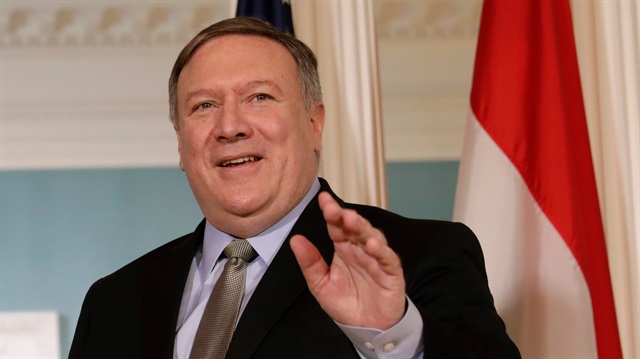
Secretary of State emphasizes importance of forming moderate new Iraqi government pursuant to constitutional timeline
U.S. Secretary of State Mike Pompeo discussed issues between Baghdad and Erbil in separate phone calls Tuesday with Iraqi Prime Minister Haider al-Abadi and Kurdish Regional Government Prime Minister Nechirvan Barzani.
State Department spokesperson Heather Nauert said in a statement that Pompeo "expressed appreciation for the two leaders’ progress in resolving outstanding Baghdad-Erbil issues according to the Iraqi constitution’s framework for dialogue."
Nauert said Pompeo emphasized the importance of forming a moderate new Iraqi government pursuant to the constitutional timeline that is responsive to the expectations of the Iraqi people.
Hailing the recent "successful" joint operations by Iraqi forces and Kurdish Peshmerga against the Daesh terrorist group, Pompeo "underscored continuing U.S. support for a strong, sovereign and prosperous Iraq as outlined in our bilateral Strategic Framework Agreement".
On Friday, al-Abadi’s Victory Bloc reportedly reached an agreement to form the country’s next government.
According to a statement released by the bloc, the agreement includes nationalist cleric Moqtada al-Sadr's Sairoon coalition, the frontrunner in Iraq’s May 12 parliamentary polls, Ammar al-Hakim’s National Wisdom Movement and Iyad Allawi’s National Coalition.
On Thursday, Iraq's official electoral commission announced that a manual recount of the May 12 poll results was more or less the same as the initial electronic vote count.
For the last two months, results of the poll had remained the subject of a bitter dispute amid widespread allegations of vote-rigging.
According to those initial results, al-Sadr's Sairoon coalition clinched 54 seats, followed by Al-Fatih (47 seats) and al-Abadi's Victory Bloc (42 seats).
Once Iraq’s Federal Court approves the results of the manual recount, incoming MPs will hold a first session to elect a new assembly speaker.
Within 30 days of that first session, the assembly will elect -- by a two-thirds majority -- the country’s next president.
The president will then task the largest bloc in parliament with drawing up a government, which must be referred back to parliament for approval.






